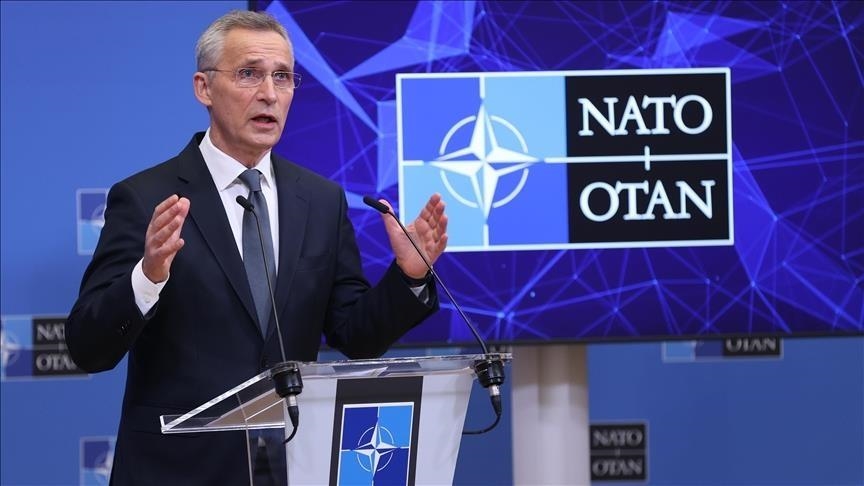NATO invites Russia to new meetings to avoid war in Ukraine
Stoltenberg says NATO members ready to meet with Russia again to discuss Moscow’s concerns, prevent military attack on Ukraine

BERLIN
NATO has invited Russia to new meetings to discuss Moscow’s security concerns and prevent Russian aggression against Ukraine, the alliance’s chief Jens Stoltenberg said on Tuesday.
Speaking at a joint news conference with German Chancellor Olaf Scholz in Berlin, Secretary General Stoltenberg said NATO allies are ready to meet with Russia to discuss concrete proposals and seek constructive outcomes.
“Today I have invited Russia and all the NATO allies to attend a series of meetings in the NATO-Russia Council in the near future, to address our concerns, but also listen to Russia's concerns, and to try to find a way forward to prevent any military attack against Ukraine,” he said.
“The risk of a conflict is real. NATO allies call on Russia to de-escalate. Any further aggression will come with a high cost for Moscow,” he stressed.
The NATO chief said they are ready to discuss Russia’s security concerns, issues such as arms control, disarmament, and non-proliferation, but will not bow to demands that do not respect the sovereignty of Ukraine.
“We will not compromise on core principles, such as the right for each nation to choose his own path, and NATO’s ability to protect and defend all allies,” he said.
Stoltenberg’s remarks came amid growing concerns over the recent Russian troop buildup on the Ukrainian border and fears of a new military assault on the country.
Russia has stressed its desire for "security guarantees," including Ukraine not joining NATO and no deployment of NATO weapons on Ukrainian soil.
German Chancellor Scholz said European allies are “deeply concerned” over the Russian troop buildup on the Ukrainian border, and will do whatever they can to prevent such aggression.
“Differences regarding questions of security should be addressed through dialogue,” he said, and called on Russia to take steps to de-escalate tensions in the region.
“Reducing its troops along the Ukrainian border would be an example for such positive steps. Of course, we're ready to enter into a serious dialogue with Russia about security issues in Europe,” he added.









